You can never truly predict which games will be a hit and which won't, but there are certain tropes I've learned to be very wary of whenever they're touted in pre-release marketing. These are the concepts that will never stop sounding exciting and fun, but almost never deliver—usually because there's something about them that simply clashes with the realities of game development.
They're so cool in theory that the industry can't resist coming back to them again and again, no matter how many times they disappoint—and as players it's easy to buy into the dream each time. That's why you need a cynic like me around to point out why these things never work.
To be clear: none of these tropes necessarily doom a game entirely, especially if they're only one part of the overall offering. Some games succeed despite a few elements that didn't quite fulfil their promises; and a rare few find a way to make them work despite the odds. There are plenty of good games out there that include one or more of these tropes. It's just that the trope itself is almost always a folly.
Evil choices
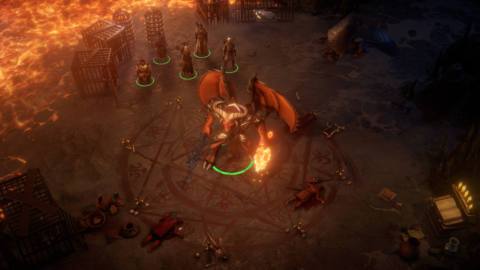
The dream
Dialogue options and moral choices will let you play as a dastardly bad guy! Particularly seen in RPGs, such as Dragon Age or Owlcat's Pathfinder games, this trope draws on our love for narrative freedom and agency, as well as the transgressive thrill of not having to be the goodie two shoes for once.
The reality
The evil choices will mostly be cartoonishly malevolent and often pointlessly self-destructive. Instead of saving the orphanage, you burn it down; instead of making friends, you murder people for not giving you good enough quest rewards. Stick to the evil path and you'll just be playing as an erratic psychopath, not a machiavellian villain.
Even when evil choices are handled with more nuance, such as in Baldur's Gate 3, the dark path is often underdeveloped, with less complete story moments. In games with companions, chances are all the best ones will tut over your choices and eventually leave you, forcing you to hang out with only the one or two designated evil party members.
The explanation
There's a few different things going on here. Partly it's a resource issue—it's always going to be difficult to accommodate branching paths in a game, and particularly ones that let you act in morally totally opposite ways. So naturally developers focus their efforts on the paths players are vastly more likely to take. A bit of a self-fulfilling prophecy, perhaps—maybe part of the reason evil choices are niche is because people are sick of how half-baked they always are—but it's a hard one to break out of.
Beyond that, it's simply difficult to build a compelling story around an evil protagonist, especially when they have to hit all the same major story beats as a good character. Why is this bastard who's only out for themselves bothering to help save the world in the first place? Evil choices often feel senseless or out of place simply because the main character being evil is senseless and out of place in the kind of story the majority of big budget games (particularly RPGs) want to tell.
Honourable exception
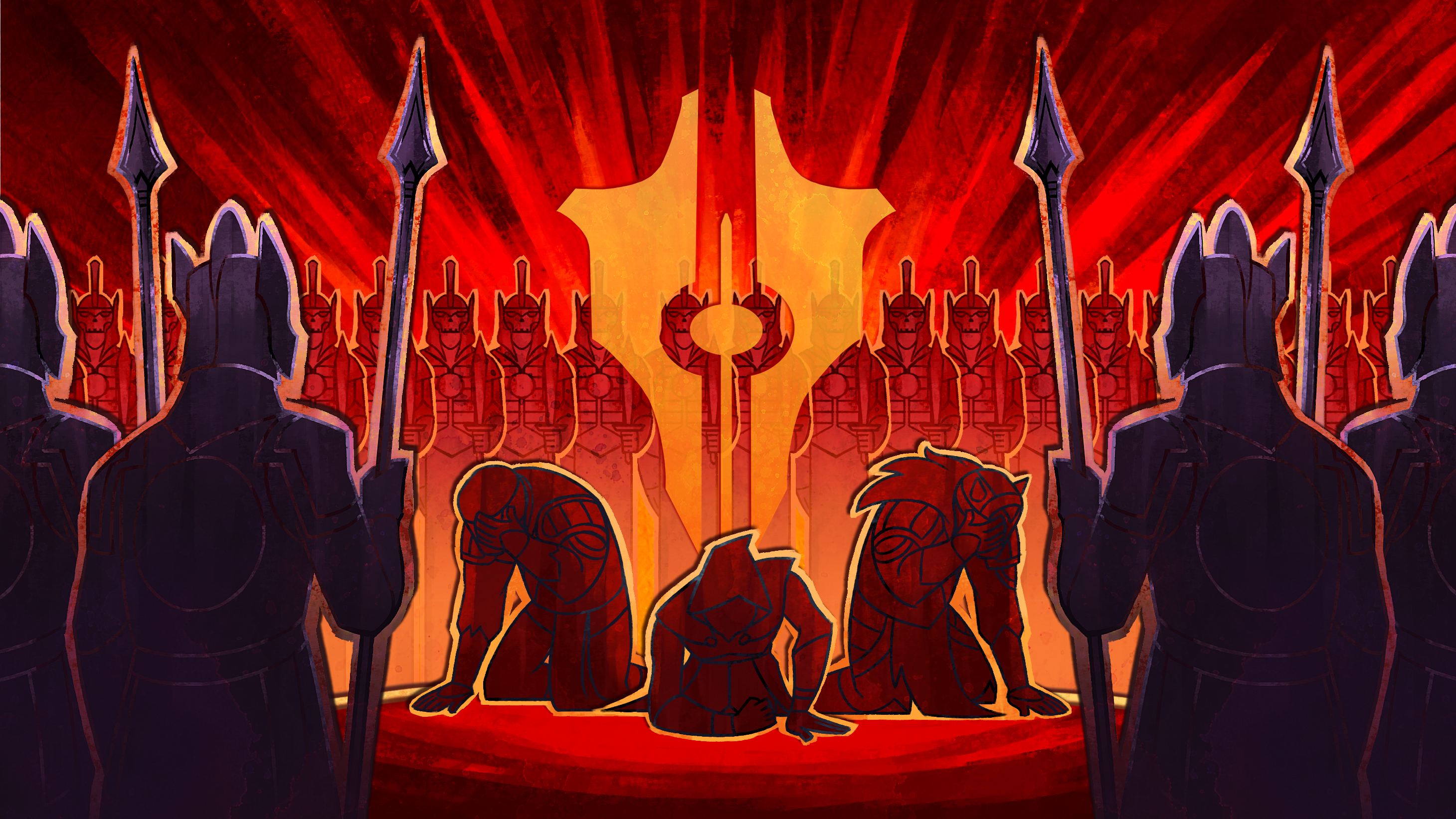
Obsidian's overlooked gem Tyranny flips the usual dynamic on its head, casting you as a leader in a dark overlord's army, surrounded by oppression and injustice. The whole game is built around wrestling with the idea of what it means to be evil, and how sometimes a seemingly cruel decision can nonetheless be the right one.
Mutation
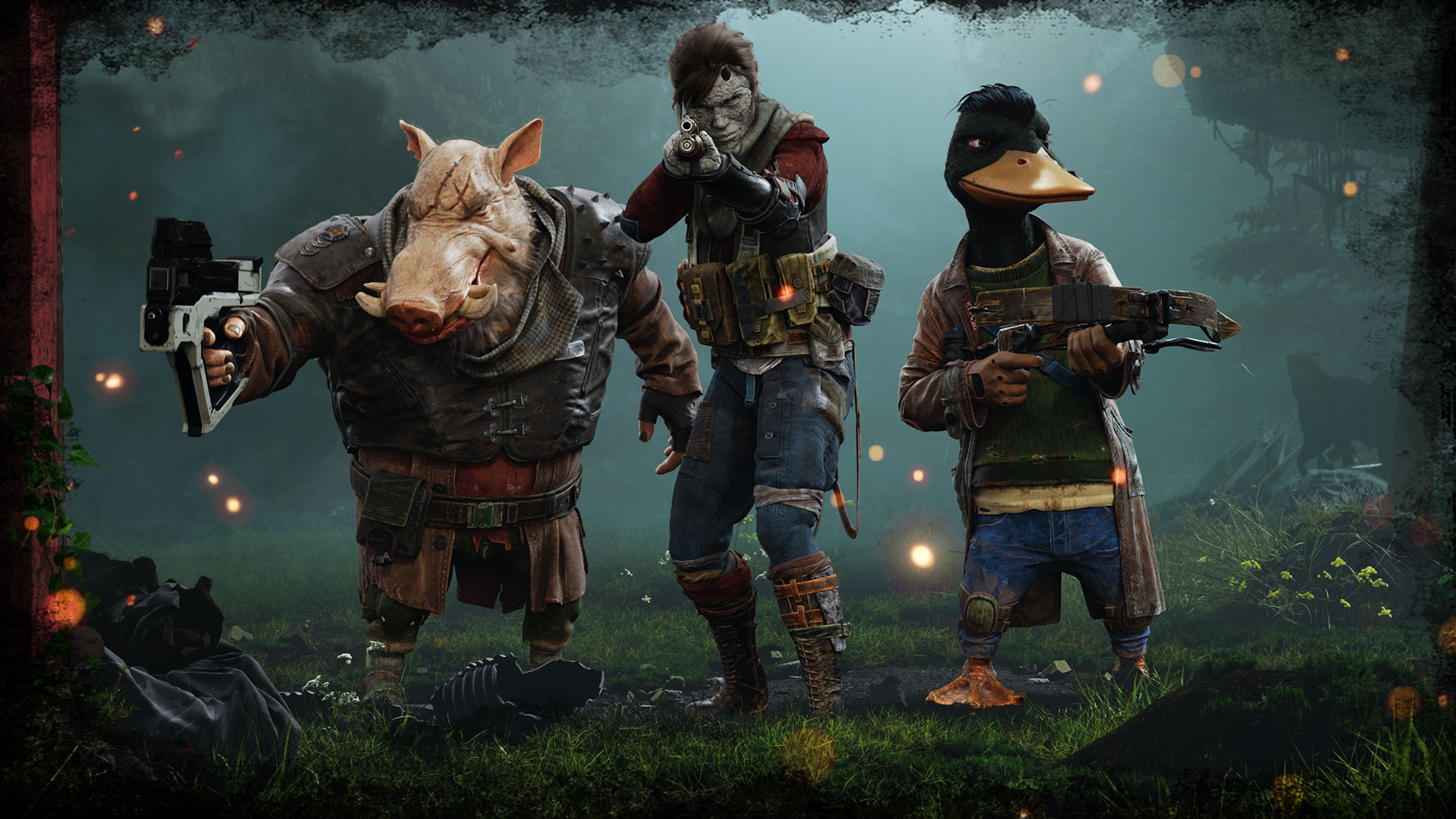
The dream
You'll get to change your character as you play with strange and exciting mutations! You might be transforming a single hero or a squad bit by bit, as in Biomutant or Mutant Year Zero: Road to Eden, or guiding the evolution of a species, as in Spore or the classic Creatures series. Either way, the fantasy is that you'll get to mould in-game characters into weird and wonderful new forms with endless possibilities for mixing and matching, changing both how they behave and how they look to a combo unique to you.
The reality
The possibilities will turn out to be rather more limited than you hoped. The mutations may have disappointingly few visual variations, or not be represented visually at all; mechanically, they'll probably manifest as relatively simple bonuses from a relatively small pool of effects, rather than being a sea of game-changing abilities. Your capacity to mutate will usually be limited in some stringent way—perhaps by a finite pool of points, or a set number of slots which are each limited to certain types of mutations. One way or another, you will not be able to become the eldritch horror of your dreams.
The explanation
Even more so than the previous entry, this is a resource issue. It's incredibly difficult to design for the kind of limitless possibilities the idea conjures up, and particularly creating character models that can be mutated in all sorts of different ways without distorting their animations, clipping into themselves, and worse is a nightmare. Similarly, mechanical effects are often kept subtle or limited because it prevents players from breaking the game—and the developer from having to account for a million different variations in player experience.
Honourable exception
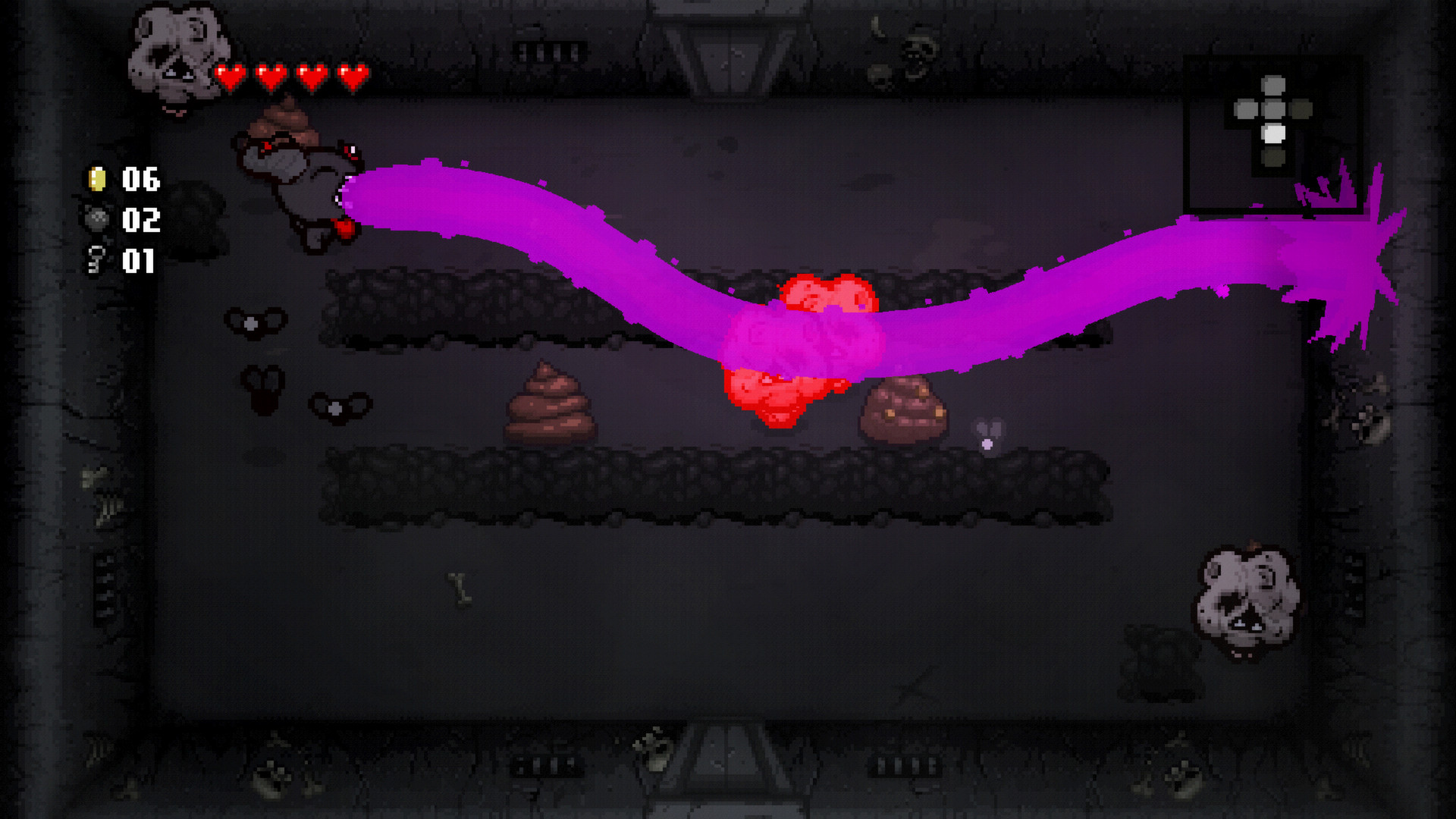
Though its edgy humour feels a little dated these days, The Binding of Isaac does an incredible job of truly letting you turn yourself into a monster in each of its roguelike runs. A simple visual approach allows grotesque new features to be layered on to the protagonist as you morph into all sorts of hideous combinations, and the impact on your combat abilities of stacking different effects is often really striking. The game wants you to break it, letting you revel in your overpowered mash-ups and throwing ever more ridiculous boss fights at you to test your latest build.
Being a giant monster
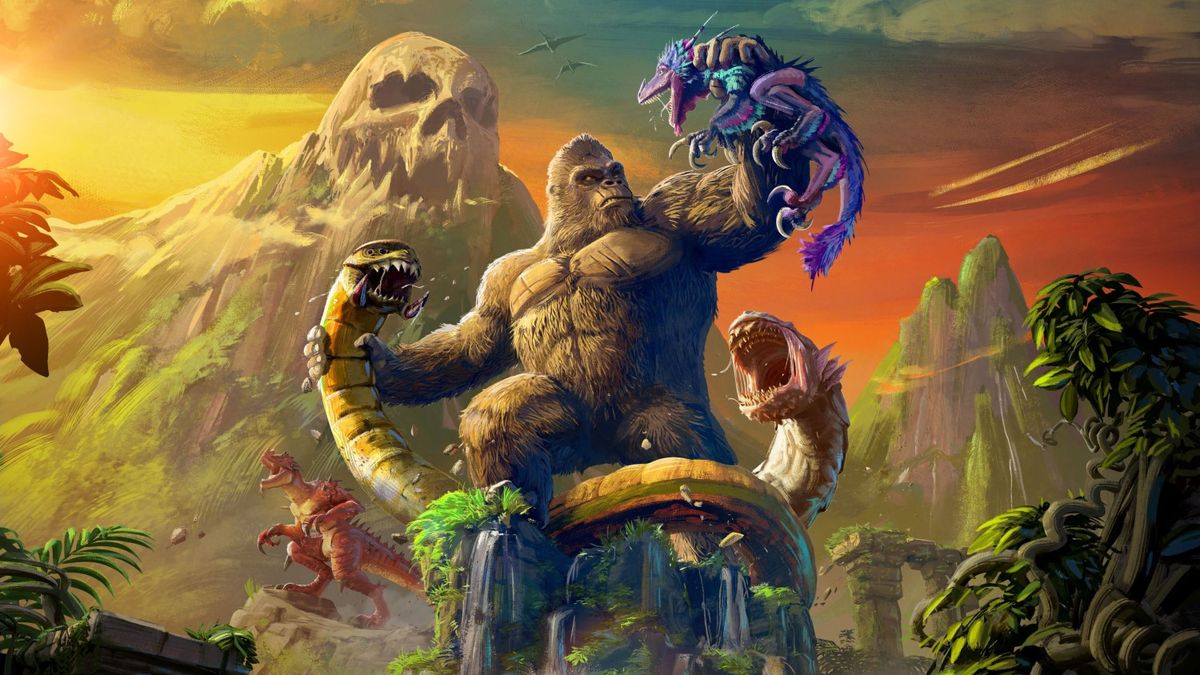
The dream
You'll get to stomp your way around as a Godzilla-sized monster—or perhaps Godzilla himself! Whether it's just a short sequence in a larger adventure, or the whole game is dedicated to kaiju chaos, what could be a better power fantasy than getting to tower over everyone else and wield unimaginable strength? Even better if you get to smash a whole city to bits!
The reality
Your enormous character will feel slow and clunky to control, and the game will struggle to find interesting things for you to do. Particularly if this is a temporary jaunt in a game where you're otherwise normal sized, the section will probably consist mostly of just hitting buttons to watch canned animations play out, and quickly wear out its welcome. If you get to fight something of equal stature, it'll feel like two action figures bashing against each other.
The explanation
A similarly disappointing related trope is boss fights against giant monsters, inspired by Shadow of the Colossus. Outside of that one influential adventure, battles against screen-filling bosses too often boil down to very simple and repetitive mechanics that don't take advantage of the incredible scale of what they're portraying.
You see Godzilla and think “It'd be amazing to play as something like that”, but… would it? The fantasy is simply flawed, here. In games, we want our characters to feel responsive, and for the most part agile and quick heroes are the most satisfying to control. For a monster to feel enormous and powerful, they need to be slow and ponderous, and that's such a difficult thing to make fun.
Even if you find a way out of that puzzle, what do you then have the player do? Creating meaningful objectives at that scale is really difficult. There's so many times you can have blundering fights against other big monsters, battling things smaller than you is irritating, and even smashing buildings gets boring when you realise all you're doing is making the world progressively flatter.
Honourable exception
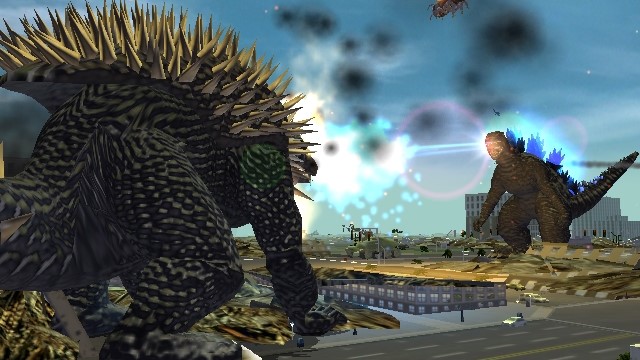
I hold very fond memories of 2002 console brawler Godzilla: Destroy All Monsters Melee, which pitched various classic monsters in head-to-head bouts—but that's probably just nostalgia talking. I'm not sure I've ever seen this trope done well in more recent times, and certainly last year's King Kong game did nothing to shake off the curse. If you've got any recommendations, let me know in the comments.
Multiple endings
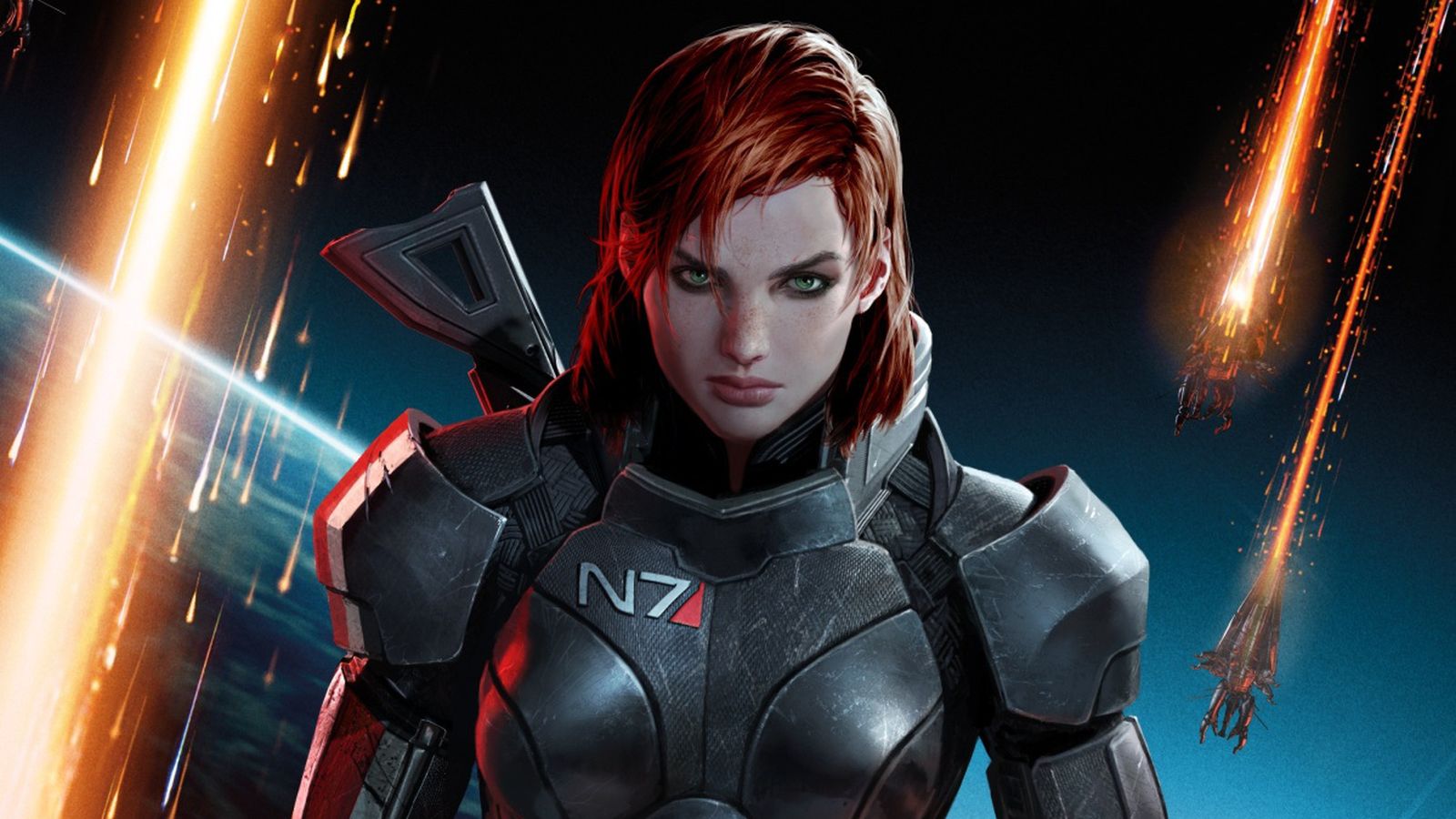
The dream
Over the course of your adventure you'll get to make all sorts of different choices and moral decisions—and at the end of it all, they'll pay off in a satisfying custom ending, one of many possible finales that accurately reflects the consequences of your actions and how you personally changed the in-game world.
The reality
There's a few different ways this can go. Sometimes the ending will be a slideshow or montage cutscene that just slots in different shots and narration to show your choices. Sometimes there'll be essentially three or four possible endings with slight variations based on a handful of things you did. Often, the ending you get will just be decided by one specific choice made right before it, disregarding most or all of your previous actions—essentially just pressing a button to choose a cutscene (infamously done with literal in-game buttons in Deus Ex: Human Revolution, for example).
Even if the ending you get does feel satisfying and fitting for your character, chances are it's only a different cutscene that separates yours from anyone else's—it's rare for your choices to actually meaningfully affect how the game's finale plays out, beyond perhaps a bit of diverging dialogue. You're fighting the final boss and making the final choice either way, it's just a question of what movie you get to watch afterwards.
Particularly in recent titles, following that cutscene, you'll often just get dumped back into the world, where the status quo doesn't seem to have changed at all either way. And then when the sequel comes out, you'll find out your ending wasn't even the canon one.
The explanation
Making one satisfying ending is hard enough, let alone multiple, and that problem only gets exponentially harder when you try to include the player's choices beyond just “good” or “evil”. Creating genuinely divergent playable finales is a tall order—the data shows most players won't finish your game anyway, so it's not a good use of limited time and money. But even if it's just a cutscene, good cutscenes aren't cheap or easy either, and making more than a handful of genuinely different ones is a big ask too.
The more seemingly important choices you get to make along the way, the more you expect those choices to ultimately pay off. But that creates more and more possible combinations, until it becomes untenable to have a custom ending for every one—unless it's something like a simple slideshow, where all your consequences can simply be automatically slotted in.
Mass Effect 3 is the ur-example of how badly this can go wrong. Across three games, we adventured through the galaxy with the implicit promise that all of our choices and actions would pay off; by the time we got to the final ending of it all, there were so many different variations between people's playthroughs that there couldn't possibly be a way to satisfyingly resolve it all for everyone. BioWare struggled under the weight of the problem, ultimately just giving us the choice of three different colours of the same cutscene, a decision so poorly received that they had to go back and retroactively change it.
Honourable exception
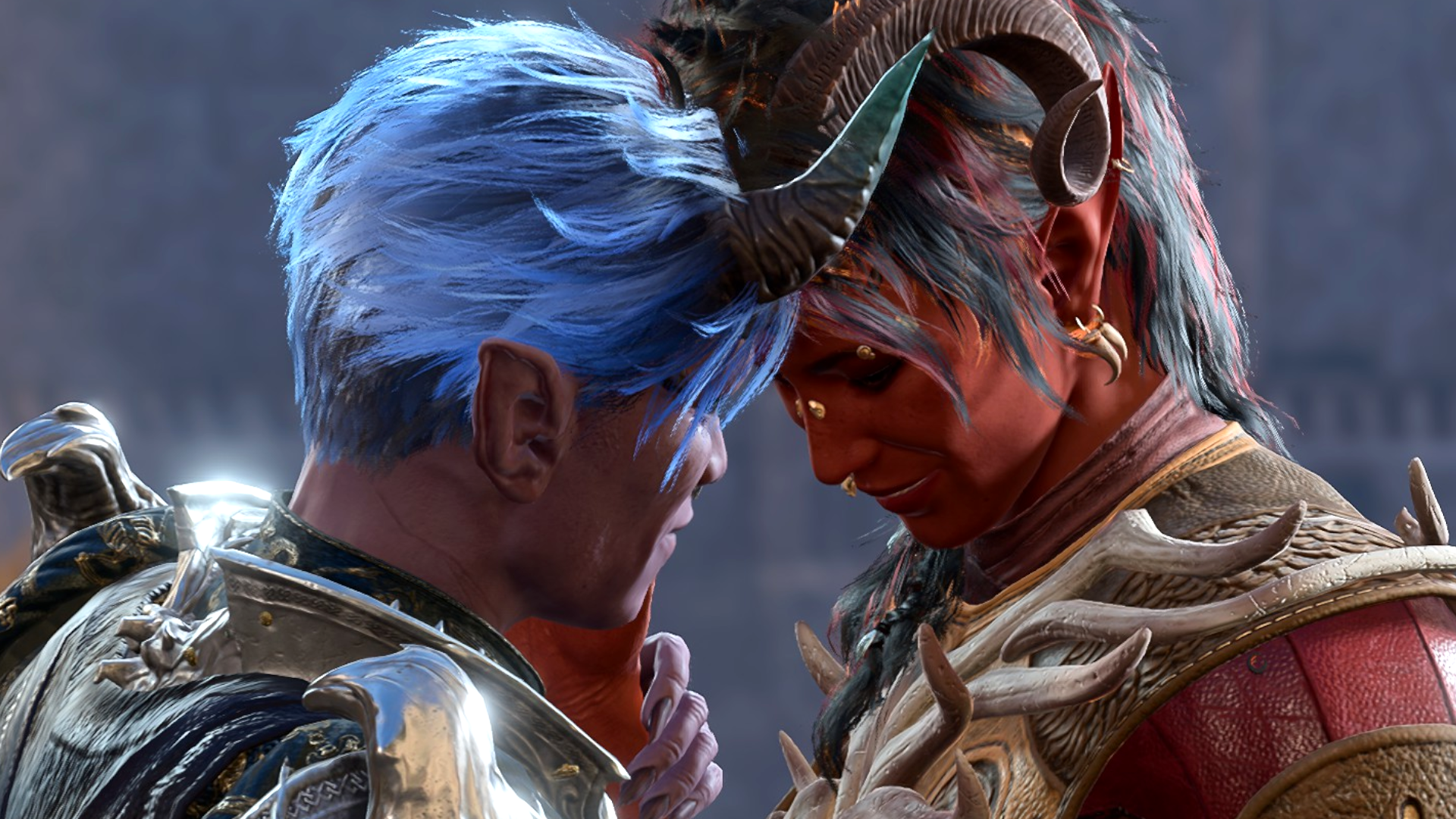
Even the acclaimed Baldur's Gate 3 with its 17,000 endings drew criticism for a lack of agency in how certain character's stories resolved—but with subsequent patches adding new ending content and a substantial epilogue allowing you to catch up with your companions and see how they've evolved, it's achieved some really remarkable depth to its finale, especially for a game that accommodates such an enormous range of player agency.
A million planets
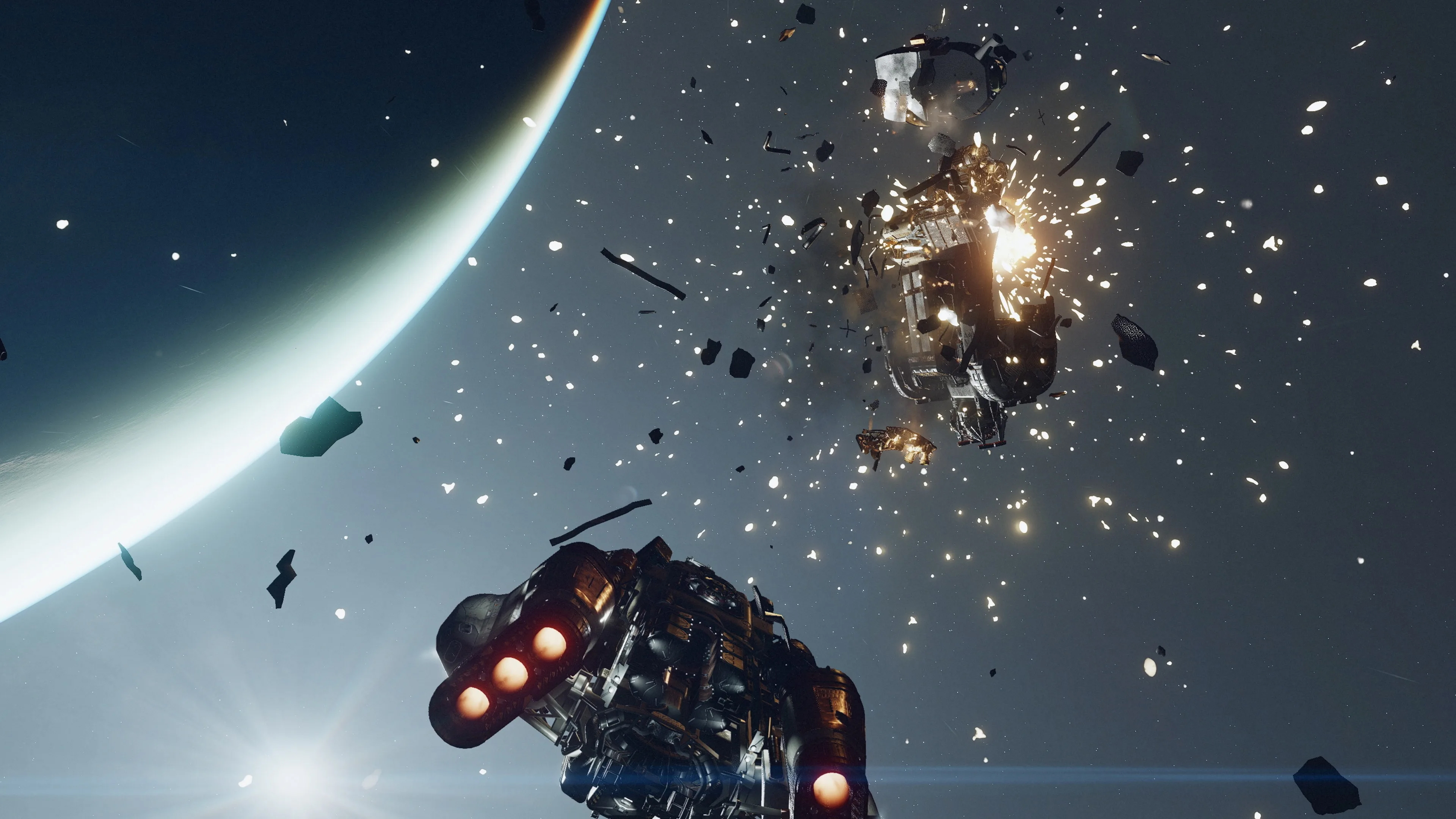
The dream
The game will feature an entire galaxy to explore! You'll be able to go to a thousand different planets, or a million, or 18 quintillion, and experience your own unique adventure. With a near-endless amount of content, you'll be able to keep enjoying fresh new stories in space forever, doing everything from hunting pirates to discovering new alien species to trading in valuable finds.
The reality
Whether it's Starfield's relatively restrained galaxy or No Man's Sky's near-infinite one, the problem is the same: inevitably, the majority of planets will feel empty or repetitive or both. Each planet won't be its own exciting discovery. Instead, most will simply feel interchangeable, and you'll struggle to remember most of the ones you visit.
Though you will be free to go anywhere, what you can do there will always be limited, and a lack of true reactivity to the galaxy will make your actions feel hollow. Because there's always another planet, and most feel generated rather than crafted, each will become disposable in your eyes, unless you make the effort to keep returning to one spot and make it a home—a choice the game will struggle to reward.
In the end, though the act of travelling and whatever you're doing on the planets may be fun, eventually you'll simply get tired of the game long before seeing everything its galaxy has to offer.
The explanation
Explorable galaxies are just one example of how games use scale as a selling point. Another common trope is games boasting of having randomly generated guns or other loot, with some enormous number of possible combinations. How often does that actually result in an enriched RPG experience? Usually all those possible combinations turn out to be countless tweaks on a few core archetypes, with most of what you pick up blurring together into one pointless soup of numbers.
One of the problems here is that while you can use techniques like procedural generation to create almost as much content as you can imagine, it's always going to feel mass-produced. The system might spit out the occasional fun oddity, but investing a galaxy with noticeably crafted, interesting encounters still requires human creativity and time, and there's always a limit to how much of that a developer team has. Generated content can be fun and cool in its own right, especially with appropriate systems built around it, but if your dream is rich and meaningful adventures on all of these many planets, that's always going to be an enormous struggle.
But the larger problem is that this is another flawed dream. No matter how good its content, any game—particularly if it's singleplayer or otherwise designed to be a self-contained experience—will eventually wear out its welcome. Games are not made better by being stretched out so long you can never finish them. That's evident enough in many modern open world games, let alone titles that offer entire galaxies. The promise of endless content is simply the promise of being able to do the same thing over and over forever.
There's nothing wrong with big games—I still love going on a huge, epic adventure. But bigger is not inherently better, and we're way past time that players should be wary of any game selling itself on the sheer quantity of its content rather than the quality.
Honourable exception
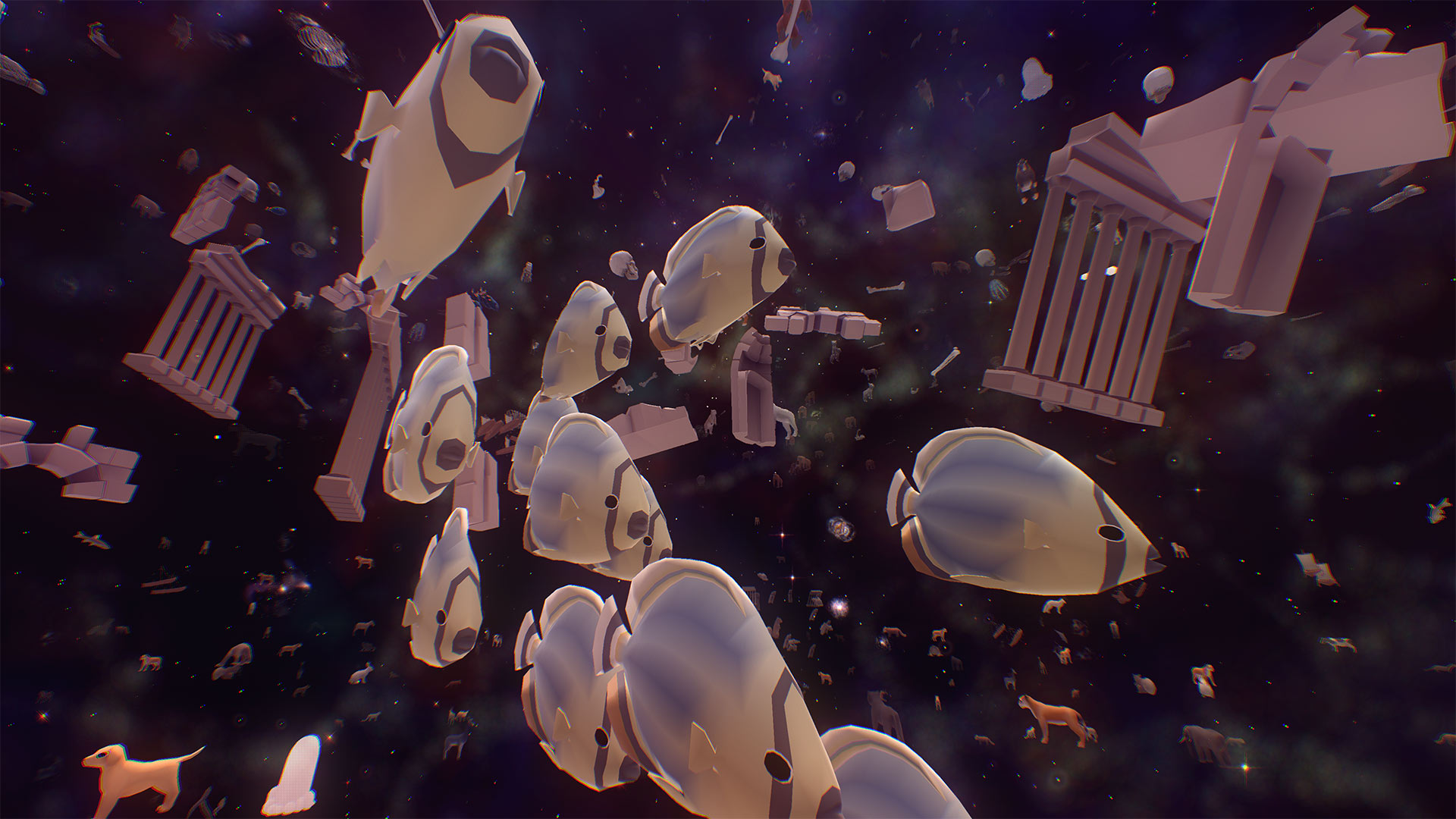
For many, subsequent updates have redeemed No Man's Sky, and invested its vast universe with much more substance than it displayed at launch—but, for me, it's still a very empty adventure, so your mileage may vary.
A game that plays with the idea of endless content in a really fascinating way is Everything. This surreal journey not only encompasses an entire vast universe, it lets you take control of almost any object in that universe, from an atom to a spiral nebula—and along the way offers a philosophical view of the vastness of existence. Importantly, Everything isn't designed to be played forever—its enormousness is in service to a point made succinctly in just a few hours.
